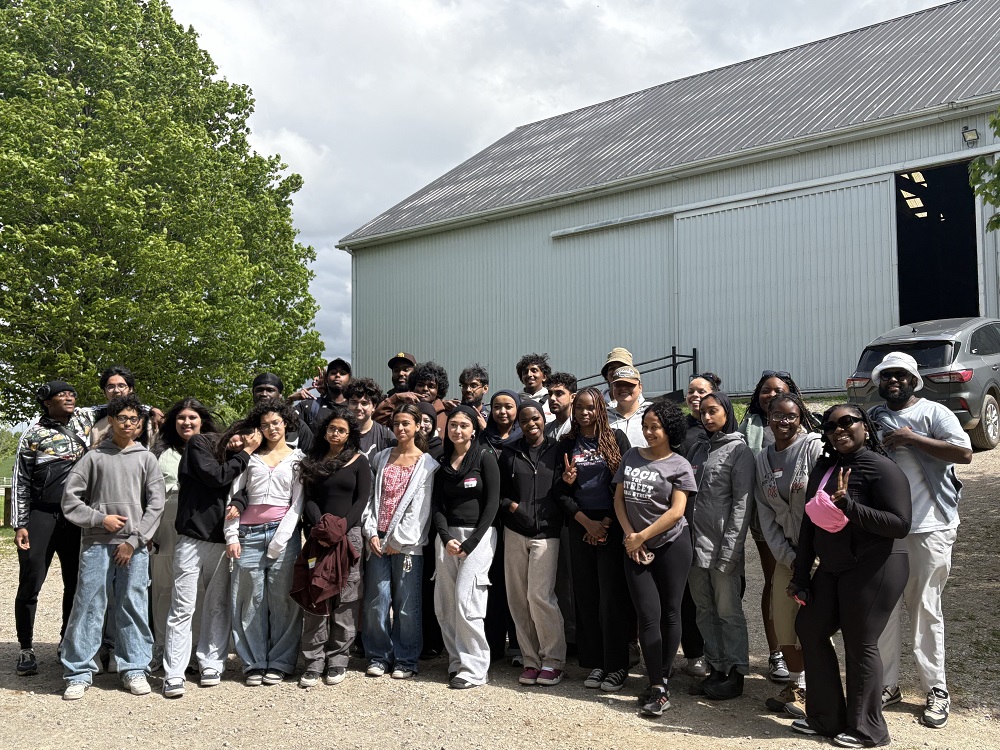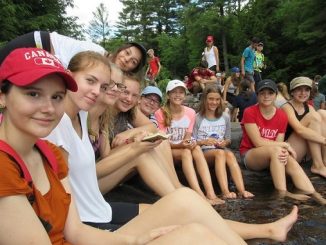Eva Marszewski is the Founder and Board Co-chair of Peacebuilders International (Canada), a Toronto-based non-profit dedicated to helping marginalized youth through restorative justice. By focusing on intervention, prevention, and capacity building, Peacebuilders works in schools, communities, and the courts to keep young people out of the justice system and on paths toward healing and growth.
Inspired by her own experience as a newcomer to Canada and her work in mediation and conflict resolution, Eva founded Peacebuilders in 2003. Since then, the organization has diverted over 1,200 youth from the courts, reduced school suspensions by up to 80%, and empowered young people to resolve conflict constructively.

Describe your charity/non-profit/volunteer work in a few sentences.
Peacebuilders is a Toronto-based non-profit organization dedicated to helping marginalized young people thrive by advancing restorative practices in schools, communities, and the justice system. Our work centres on the use of restorative approaches in schools and the courts through three core pillars—intervention, prevention, and capacity building—to increase access to justice for young people facing barriers and to promote accountability, healing, and personal growth.
What problem does it aim to solve?
Due to systemic barriers and lack of supportive interventions, marginalized young people who are in conflict and who have a hard time fitting in, are pushed out of schools and into the justice system due to punitive disciplinary practices. Without restorative solutions, youth facing suspension, expulsion or justice involvement experience escalating conflict, educational setbacks and long-term barriers to success.
What was the situation like when you started? What made you want to get involved?
Prior to the implementation of the Youth Criminal Justice Act in 2003, Canada had the highest youth incarceration rate in the Western industrialized world, including the United States.
Peacebuilders was founded in 2003 but the origins of the idea for Peacebuilders long preceded 2003. Founder Eva Marszewski, a Venezuelan of Polish-Ukrainian heritage, arrived in Toronto schools as a non-English speaking immigrant teen. She experienced first-hand some of the challenges facing high school students when they are different from the rest.
A lawyer with deep background in the justice system and small “p” political leadership, her attendance in 1992 at the pioneering Harvard Mediation Workshop (one of the first of its kind in North America) introduced her to mediation, a new field in conflict resolution. Mediation is based upon an ethical system of positive values, the promotion of personal accountability and the rebuilding of positive personal relationships. The philosophy and values underlying mediation and restorative justice are very closely related.
Eva’s leadership in the mid to late 90s in SPIDR (Society for Professionals in Dispute Resolution) and Canadian youth-led YouCAN (Youth Organising to understand conflict and advocate for non-violence) also came at a pivotal time in the development of the fields of conflict management and consensus building.
Eva also then discovered the vastly unexplored possibilities of the circle process to address conflict and criminal behaviour, and developed Peacebuilders’ approach, which combines the philosophy and values of restorative justice, the theory of conflict resolution, a secular circle process with the use of a generic talking piece.
This last development came as a result of her observation of a Peacemaking Circle in the Yukon led with the use of a Talking Piece (a sacred eagle feather in that case) by then Chief Territorial Judge Barry Stuart. All those sitting in the circle, family and community members of the Carcross/Tagish First Nation, agreed to help the youth, who had been convicted of arson as he had burned down a home, to rebuild the home.
In exchange, instead of sentencing the youth to jail, the Judge’s sentence required the youth, with the help of his community, to rebuild the house instead of spending the next many years in jail. Judge Stuart’s decision thus enabled the youth, with help from his community, to address harm, promote accountability, and foster healing. A homeless man would regain a home. The principles exemplified in the circle led by Judge Stuart, which promoted inclusion, accountability, assisted in the reparation of harm, empowered healing and promoted reintegration, have become the foundation of Peacebuilders’ values.
In 2002, the new Youth Criminal Justice Act incorporated the emerging ethos of the two connected fields of conflict resolution and restorative justice. In the 23 years since, the number of young people incarcerated in Canada has plummeted!
Peacebuilders’ pioneering Pilot Program, Peacemaking Circles in St. James Town and Regent Park, funded by the Law Foundation of Ontario from 2004 to 2006, sought to apply the philosophy and values embodied in the emerging fields of mediation and restorative justice, within non-ceremonial, secular circles with the use of a generic talking piece, and apply the provisions of the new Youth Criminal Justice Act, to youth conflict in Toronto’s most highly diverse and densely populated St. James Town and Regent Park.
Since 2004, Peacebuilders programs have received strong endorsements through evaluations, with 88% of respondents expressing satisfaction and 82% indicating they would recommend the programs to friends or colleagues. Peacebuilders has diverted over 1,200 young people out of the courts before trial and referred them back to school 78% of student and teacher groups indicated that they would or might use the practices and skills learned in their daily lives. School suspensions have been reduced by 60-80%.

What more needs to be done?
We must expand access to restorative justice in every school, courtroom, and community space. While Peacebuilders’ programs have shown strong success, more can be done by increasing support for youth-led initiatives, investing in culturally relevant programming, and training more educators and professionals in restorative practices. By growing our network of monthly donors, volunteers, and community champions, we can reach more young people, strengthen their support systems, and ensure accountability is met with empathy, not punishment. Now is the time to act—because every young person deserves a chance to heal, grow, and thrive.
How can our readers help?
Your monthly support can change a young person’s life. By becoming a monthly donor, you’re investing in prevention and intervention programs that uplift youth across the city. Even $10 a month helps provide holistic programming that builds confidence, resilience, and brighter futures. Become a donor today and be part of the change.
Where can we follow you?




